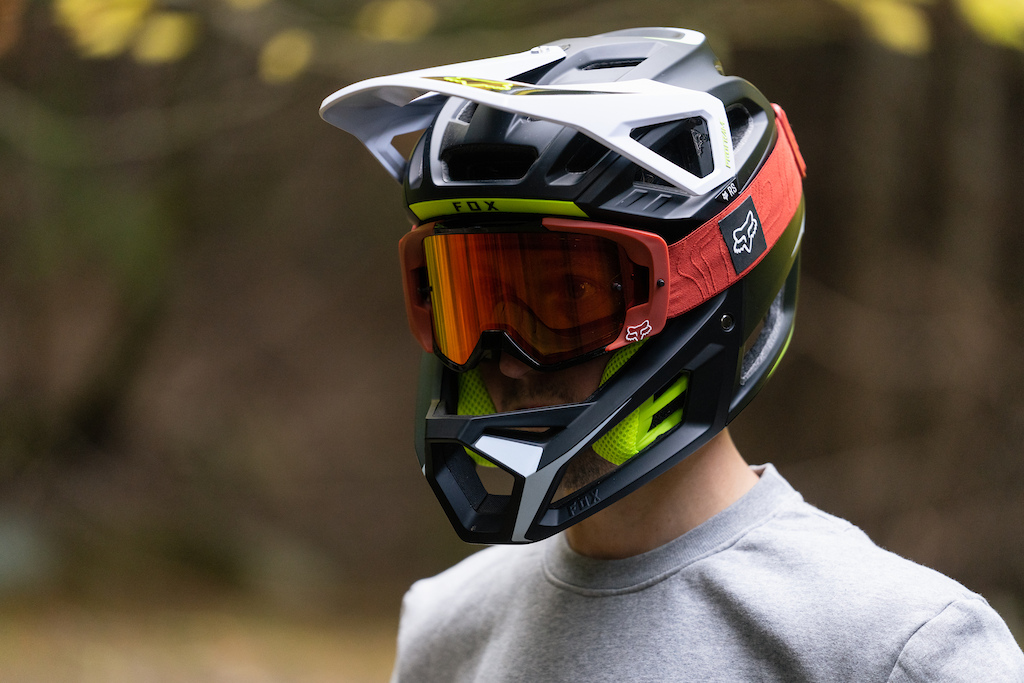Sports that require a helmet include football, hockey, baseball, softball, cycling, and skateboarding. These sports prioritize safety by mandating the use of helmets to protect participants from head injuries.
Wearing a helmet is crucial to minimize the risk of concussions, skull fractures, and other traumatic injuries that can occur during these high-impact activities. By offering the necessary head protection, helmets ensure that athletes can enjoy their chosen sports with reduced concern for potential harm.
Whether on the field, ice, road, or halfpipe, wearing a helmet is a vital safety measure that should not be overlooked.
Read Also: Sports That Require Protective Gear: Play Fearlessly with Essential Equipment!

Credit: www.pinkbike.com
20 sports that require helmets
1. American Football
Helmets protect players from head injuries caused by tackles and collisions.
2. Ice Hockey
Helmets with visors or cages shield players from high-speed pucks and physical contact.
3. Baseball/Softball
Batters and catchers wear helmets to protect against fast pitches and foul balls.
4. Cycling
Helmets are essential for preventing head injuries during falls or collisions.
5. Skiing/Snowboarding
Helmets guard against injuries from falls or collisions with objects or other skiers.
6. Motorcycling
Helmets are legally required in most places to reduce injuries in crashes.
7. Horse Riding (Equestrian)
Riders wear helmets to protect against falls and head injuries from kicks.
8. Rock Climbing
Helmets shield climbers from falling debris and head impacts during falls.
9. Skateboarding
Helmets reduce the risk of traumatic brain injuries during falls and tricks.
10. Rollerblading/Roller Derby
Helmets are mandatory to prevent head injuries from falls during high-speed skating.
11. BMX Racing
Specialized helmets protect riders from high-speed crashes and falls during stunts.
12. Cricket
Batsmen and close fielders wear helmets to guard against fast balls and bouncers.
13. Lacrosse
Helmets protect players from ball impacts and aggressive physical contact.
14. Rugby (Certain Variants)
Some variations of rugby require headgear or helmets for added safety.
15. Fencing
Masks (specialized helmets) protect against strikes from opponents’ weapons.
16. Whitewater Rafting/Kayaking
Helmets safeguard against impacts with rocks and other objects in turbulent waters.
17. Off-Road Racing (Motorsports)
Drivers and riders wear helmets for crash protection in motocross or ATV racing.
18. Bull Riding/Rodeo
Helmets with face guards shield riders from head impacts and animal-related injuries.
19. Caving (Spelunking)
Helmets with mounted lights protect explorers from falling debris and head impacts.
20. Boxing/MMA (Amateur Levels)
Headgear is often required to reduce the risk of cuts and head trauma during matches.
These helmets are specially designed for each sport’s unique challenges, ensuring maximum protection without hindering performance.
Extreme Sports
When it comes to adrenaline-pumping experiences, extreme sports take the cake. These sports push the boundaries of what the human body can achieve and require immense skill, focus, and bravery. What sets extreme sports apart is the exhilarating combination of danger and excitement.
While they may not be for the faint-hearted, extreme sports have gained a cult following for their ability to provide unmatched thrills and a unique sense of accomplishment.
Rock Climbing
Rock climbing is a heart-pounding sport that combines strength, endurance, and mental fortitude. As you ascend vertical cliffs or scale challenging boulders, a helmet becomes a vital safety accessory.
Designed to protect your head from falling rocks or accidental impacts, a helmet provides crucial protection in case of a mishap during this adventurous activity.
When it comes to choosing a rock climbing helmet, there are a few key factors to consider. First and foremost, ensure that the helmet fits snugly on your head without any discomfort. Look for adjustable straps that can be tightened to provide a secure fit. Additionally, opt for a helmet with proper ventilation to prevent excessive sweating and discomfort.
Your rock climbing helmet should meet safety standards set by trusted organizations, such as UIAA (International Climbing and Mountaineering Federation) or CE (Conformité Européene). These certifications signify that the helmet has passed rigorous tests and is reliable in protecting your head during your climbing expeditions.
Skydiving
For those seeking the ultimate rush, skydiving offers an unmatched adrenaline surge. The thrilling experience of diving through the sky at high speeds while freefalling demands thorough safety measures, and a helmet is a non-negotiable requirement in this daredevil sport.
When choosing a skydiving helmet, there are a few essential factors to consider. A full-face helmet offers the most comprehensive protection as it covers your entire head, including your face.
These type of helmet shields your face from wind, debris, and potential impacts during freefall. Lightweight materials, such as carbon fiber or high-impact polycarbonate, are commonly used in skydiving helmets to ensure maximum protection without compromising on comfort.
Keep in mind that your skydiving helmet should have a secure strap system to prevent it from coming loose during your descent. Adjustable padding and fit options are key features to look for, allowing you to customize the fit according to your head shape and size.
Remember, a high-quality skydiving helmet is an invaluable investment in your safety. Don’t compromise on your protection while experiencing the thrill of freefall.
Motor Sports
When it comes to motor sports, safety is of utmost importance. These high-speed, adrenaline-pumping sports involve fast and powerful machines, which is why wearing a helmet is imperative. A helmet protects the head and reduces the risk of serious injuries in the event of accidents or crashes.
Motocross
Motocross is an exhilarating motor sport that takes place on off-road circuits, consisting of various types of terrain such as dirt, sand, and mud. It involves riders maneuvering their motorcycles to navigate through challenging obstacles, jumps, and steep hills.
Due to the demanding nature of motocross, wearing a helmet is crucial to protect against head injuries during jumps, sharp turns, and collisions with other riders. The helmet acts as a shield, safeguarding the rider’s head from impact and potential falls.
Auto Racing
Auto racing is a thrilling and competitive sport that captivates fans around the world. Whether it’s Formula 1, NASCAR, or various other racing series, the speed and intensity of these races require drivers to wear helmets for maximum protection.
The helmet not only protects the head from potential crashes but also shields the driver from debris that may fly into the cockpit during high-speed races. The aerodynamic design of racing helmets ensures that the driver’s vision is clear and unobstructed, allowing them to focus on the race ahead.
Team Sports
Team sports are an excellent way to build camaraderie, improve communication skills, and promote a healthy competitive spirit. However, engaging in these sports can also carry a certain level of risk. That is why wearing a helmet is crucial to minimizing the risk of head injuries. Let’s take a look at two popular team sports that require players to wear helmets: Football and Ice Hockey.
Football
Football, with its robust physicality and highly competitive nature, has seen a significant emphasis on player safety in recent years. Given the full-contact nature of the sport, helmets are essential for protecting players from head traumas and concussions.
Football helmets are designed with advanced technology and materials to mitigate the impact of collisions. They typically feature a hard shell made of polycarbonate, which provides durability and impact resistance. To dampen the force of a hit, polystyrene foam padding is added on the inside.
The foam helps absorb and distribute the impact, reducing the risk of serious head injuries. It is important for football players to ensure that their helmets fit properly, with an excellent chinstrap to secure the helmet and keep it in place during gameplay.
Ice Hockey
Ice hockey is another team sport that requires players to wear helmets. As players zoom across the ice, jostling for possession of the puck, collisions and falls are inevitable. With the risk of high-speed impact or crashing into the boards, helmets play a pivotal role in protecting players’ heads from potential injuries. Ice hockey helmets are designed to provide comprehensive protection.
They come equipped with a strong outer shell and a thick layer of foam padding on the inside to absorb and minimize the force of impacts. Additionally, most ice hockey helmets feature a face cage or shield to safeguard the player’s face from errant sticks and flying pucks.
It is imperative for ice hockey players to wear helmets that fit snugly and are properly fastened to ensure maximum protection.
Helmets are not just accessories in team sports; they are critical protective gear that significantly reduce the risk of head and brain injuries. Whether it’s football or ice hockey, these helmets minimize the impact of collisions, ensuring players can continue playing the game they love with greater safety.
So, if you are participating in team sports that require helmets, always prioritize safety and make sure to wear a well-fitted and secure helmet.

Credit: issuu.com

Credit: www.theguardian.com
Frequently Asked Questions On Sports That Require A Helmet
What Sports Require A Helmet?
Sports that require a helmet include football, hockey, skiing, snowboarding, skateboarding, and biking. Helmets are crucial to protect your head from potential injuries that can occur during these high-impact activities.
Why Is It Important To Wear A Helmet In Sports?
Wearing a helmet in sports is important because it helps prevent head injuries. Helmets provide protection by absorbing the impact of a fall or collision, reducing the risk of serious brain injuries, concussions, and skull fractures.
How Do Helmets Protect Your Head In Sports?
Helmets protect your head in sports by distributing the force of an impact over a larger area. They act as a cushion, absorbing and redirecting energy from a fall or a hit, reducing the impact on your brain and skull.
Are Helmets Mandatory In All Sports?
While helmets are not mandatory in all sports, they are highly recommended in sports where there is a risk of head injuries. Many sports organizations and governing bodies have helmet regulations in place to ensure the safety of participants.
Also Check: Do I Need a Helmet for Longboarding? Stay Safe and Protected!
Conclusion
To ensure safety in sports, wearing a helmet is crucial. From high-impact activities like football and hockey to extreme sports like skateboarding and BMX, helmets play a vital role in preventing head injuries. Whether you’re a professional athlete or a casual enthusiast, protecting your head should never be compromised.
So, remember to gear up with a helmet before engaging in any sport, and enjoy your game with peace of mind. Stay safe, always!



